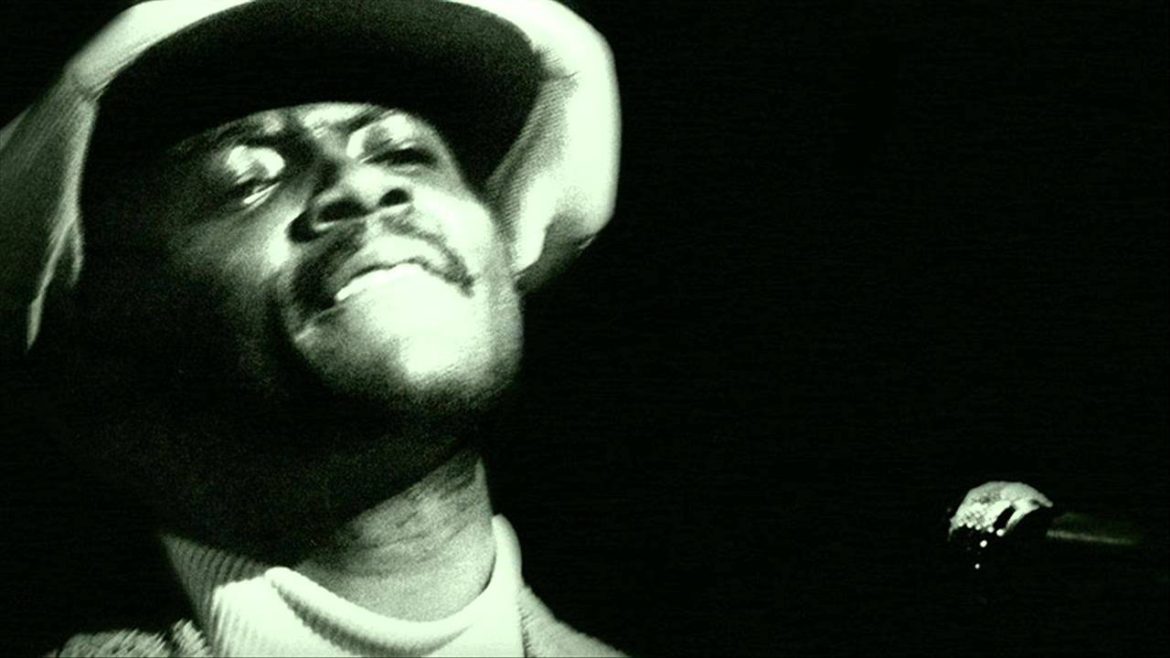
Donny Edward Hathaway (October 1, 1945 – January 13, 1979) (known as Donny Hathaway) was an American jazz, blues, soul and gospel singer, songwriter, arranger and pianist.
He born in Chicago and raised by his grandmother, a professional gospel singer, on a housing project in St. Louis. Aged three he began singing in a church choir with his grandmother and also started studying the piano. In 1963 he graduated from Vashon High School and then studied music on a scholarship at Howard University, Washington, D.C.. It was here where he met and became close friends with Roberta Flack. During 1967, after receiving several job offers in the music business, he decided to leave Howard just before completing a degree.
Donny Hathaway worked as songwriter, session musician, arranger and producer for Curtis Mayfield’s Curtom Records in Chicago. He did the arrangements for hits by the Unifics and worked on projects by the Staple Singers, Jerry Butler, Aretha Franklin, the Impressions and Curtis Mayfield. After becoming a “house producer” at Curtom, he also started recording there and recorded his first single under his own name in 1969. It was a duet with singer June Conquest called “I Thank You Baby”.
He signed a record deal with Atco Records, a division of Atlantic Records, in 1969 and following his first single, “The Ghetto, Pt 1”, in early 1970, Rolling Stone magazine highlighted him as “a major new force in soul music.”
The song was featured on his highly critically acclaimed debut LP, “Everything Is Everything”, which he co-produced and also arranged all the tracks. His second LP, “Donny Hathaway”, was mainly covers of contemporary pop, soul, and gospel songs. His third album “Roberta Flack & Donny Hathaway” was an album of duets with his friend and label mate Roberta Flack and was the LP that finally established him, especially on the pop charts. The album was both a critical and commercial success, including the song “Where Is The Love”, which was written by Ralph MacDonald and proved to be not only an R&B success, but also scored Top Five on the pop charts. It sold over a million copies, and was awarded a gold disc in 1972. The album also included a number of other covers, including versions of Carole King’s “You’ve Got a Friend”, “Baby I Love You”, originally a hit for Aretha Franklin, and “You’ve Lost That Loving Feeling”.
It is thought that Hathaway’s most influential recording was his 1972 album, “Live”, which has been called “one of the best live albums ever recorded” by Daryl Easlea of the BBC. It was actually recorded at two separate concerts with side one recorded at The Troubadour in Hollywood, and side two at The Bitter End in Greenwich Village, Manhattan.
His final studio album, “Extension of a Man” was released in 1973 with two tracks, “Love Love Love” and “I Love You More Than You’ll Ever Know” reaching both the pop and R&B charts. However, it was his classic ballad, “Someday We’ll All Be Free” and a six-minute symphonic-styled instrumental piece called “I Love The Lord, He Heard My Cry” which the LP was probably best known for.
He returned to the charts with another duet with Roberta Flack, “The Closer I Get to You” on her album, “Blue Lights in the Basement” in 1978. The song topped the R&B chart and just missed the number 1 spot on the Hot 100 reaching number 2.
Donny Hathaway was also known as the co-composer and performer of, “This Christmas”, which was originally released in 1970, and has become a holiday staple and often used in movies, television and advertising. It has been covered by several artists, including The Whispers, Diana Ross, Aretha Franklin, The Temptations, The Four Tops, Stevie Wonder, Alexander O’Neal, Christina Aguilera, Chicago, Harry Connick, Jr., Dru Hill, *NSYNC, Gloria Estefan, Boney James, Chris Brown, Patti LaBelle and Mary J Blige (A Mary Christmas, album 2013), Seal, and Train.
At the height of his career Donny Hathaway was diagnosed with paranoid schizophrenia but he was known not to take his prescribed medication regularly enough to properly control the symptoms. Over the course of the 1970s, his mental instability wreaked havoc on his life and required several hospitalizations.
On January 13,1979 Hathaway began a recording session for another album of duets at which producers/musicians Eric Mercury and James Mtume, and Roberta Flack were present. Both Mercury and Mtume reported that although Hathaway’s voice sounded good, he began behaving irrationally, and was paranoid and delusional. And so they decided the recording session could not continue, and all of the musicians went home.
Hours later, Donny Hathaway was found dead on the sidewalk below the window of his 15th-floor room of New York’s Essex House hotel. It was reported that he had jumped from his balcony. The glass had been neatly removed from the window and there were no signs of struggle, leading investigators to rule that Hathaway’s death was a suicide.
Hathaway’s funeral was conducted by the Reverend Jesse Jackson. Later in 1979, the Whispers recorded the tribute song, “Song for Donny”, for their self-titled breakthrough album. The song reached number 21 on the R&B chart. That same year, they used that tribute song’s arrangement to do a cover of Hathaways’ “This Christmas,” turning Hathaway’s uptempo Christmas gem into a classic, sentimental love song, a staple of their well-received “Happy Holidays To You” Christmas album.
Check out Donny Hathaway on Amazon


Pingback: Fred White from Earth, Wind & Fire died January 1, 2023 - Dead Musicians
Pingback: Roberta Flack died on February 24, 2025 - Dead Musicians